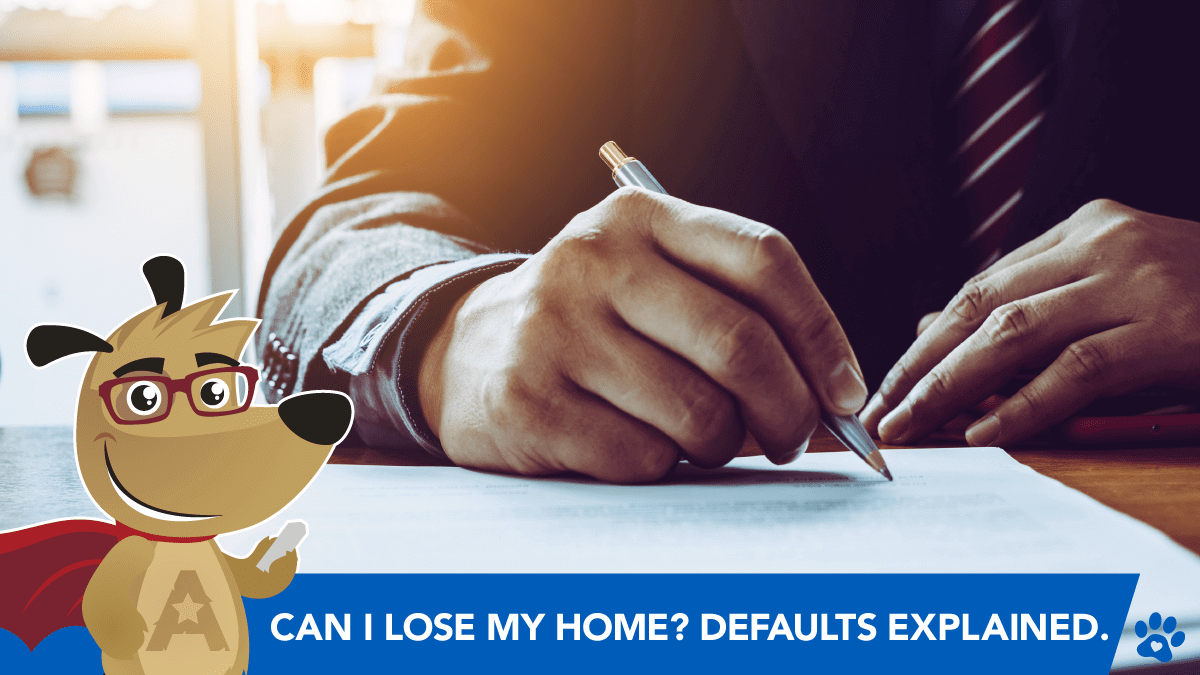5 Ways To Lose Your Home With a Reverse Mortgage
 |
Michael G. Branson, CEO of All Reverse Mortgage, Inc., and moderator of ARLO™, has 45 years of experience in the mortgage banking industry. He has devoted the past 20 years to reverse mortgages exclusively. (License: NMLS# 14040) |
 |
All Reverse Mortgage's editing process includes rigorous fact-checking led by industry experts to ensure all content is accurate and current. This article has been reviewed, edited, and fact-checked by Cliff Auerswald, President and co-creator of ARLO™. (License: NMLS# 14041) |
With a federally insured Home Equity Conversion Mortgage (HECM), the borrower retains ownership of the property while continuing to live there throughout the loan. They are not required to make monthly mortgage payments during that time.
Reverse mortgages are often misunderstood, and a common misperception is the idea that in a reverse mortgage, “the bank takes the home.” On the contrary, if the borrower meets the loan terms, the borrower retains ownership of the home throughout the loan term.
The loan balance grows over time, and if the borrower moves or dies, the borrower and their estate are responsible for repaying the loan. However, there are still events that can lead to a borrower defaulting on the loan, which can, in turn, result in foreclosure and loss of your home.

#1. Failure to Maintain Property Charges
If a reverse mortgage borrower defaults on property taxes, the borrower would face local government enforcement action for nonpayment, and the reverse mortgage would be at risk of being called due and payable.
Property taxes must be paid on time to keep the loan in good standing; if taxes go unpaid, the taxing authority may place a lien on the home.
This puts the reverse mortgage lender at risk since a reverse mortgage takes the first-lien position on the home. Some localities offer resources for borrowers if they have difficulty paying their property taxes.
For instance, several states allow deferring property taxes (though they must still be repaid later). Others offer assistance programs designed to help homeowners cover their property taxes.
Resources on some of these programs are available on the Consumer Financial Protection Bureau (CFPB) website.
#2. Failure to Maintain Homeowners Insurance
The same reasoning applies to maintaining homeowners’ insurance.
Reverse mortgage lenders want to avoid as much risk as possible, so homeowner’s insurance is a requirement for all reverse mortgage properties.
#3. Failure to Maintain Your Home in Reasonable Condition
Reverse mortgage borrowers are responsible for keeping their homes up to FHA standards. If the home falls into disrepair, it can trigger a foreclosure and require you, as the borrower, to vacate the home.
There are a few specific requirements that, if not met, could trigger a default and, if not resolved, lead to foreclosure.
#4. Failure to Occupy Your Home as a Primary Residence
If you move, your loan becomes due and payable. According to the terms of a reverse mortgage, the home you are borrowing against must remain your primary residence for the life of the loan.
Therefore, most reverse mortgage companies advertise that you can remain in your home without making monthly mortgage payments until you move out or pass away.
If you move out of the home and a routine occupancy check indicates you no longer reside there, the reverse mortgage servicer will request repayment of the loan.
The lender may initiate foreclosure proceedings to recover the outstanding balance if the loan is not repaid. If you move or leave the home and do not maintain your primary residence, the servicer can call the loan due and payable.
#5. Non-Borrowing Spouses Must Be Disclosed to Gain Protection
Similarly, if you — as the primary borrower — pass away before your spouse and are not listed on the loan as either a co-borrower or non-borrowing spouse, then that spouse could face a foreclosure action.
In recent years, new protections have been instituted for the non-borrowing spouses of reverse mortgage borrowers. Still, it is always advised that an affected couple inform the lender and servicer of everyone involved in the transaction at every possible step.
Top FAQs
Can you lose your house with a reverse mortgage?
Do you have to pay the property taxes with a reverse mortgage?
What happens to a home with a reverse mortgage when the owner dies?
How many reverse mortgages end in foreclosure?
How can I stop a reverse mortgage foreclosure?
Summary — You Can Lose Your Home in a Reverse Mortgage If:
- You leave the home
- For six months or more out of a year for a non-medical reason
- For 12 consecutive months
- You pass away, and your remaining spouse is not listed as a borrower or non-borrowing spouse.
- You do not keep up with property taxes
- You fall behind on homeowner’s insurance payments
- You allow the home to fall into disrepair
Concerned About Reverse Mortgage Default? Get expert guidance from All Reverse Mortgage, Inc. (ARLO™) — America’s #1 Rated Lender with a 4.99/5-star rating! Call (800) 565-1722 or click here for your free quote — simple, trusted, 100% secure!


 Michael G. Branson
Michael G. Branson Cliff Auerswald
Cliff Auerswald

November 22nd, 2025
November 25th, 2025
May 1st, 2025
May 5th, 2025
November 10th, 2025
November 11th, 2025
January 6th, 2025
January 8th, 2025
November 6th, 2024
November 7th, 2024
October 2nd, 2024
October 5th, 2024
September 30th, 2024
October 5th, 2024
December 27th, 2024
December 30th, 2024
September 13th, 2024
September 14th, 2024
June 21st, 2024
June 22nd, 2024
May 30th, 2024
June 2nd, 2024
May 8th, 2024
May 13th, 2024
May 6th, 2023
May 9th, 2023
August 12th, 2021
September 28th, 2021
October 13th, 2021
February 12th, 2021
February 15th, 2021
January 6th, 2021
January 6th, 2021
August 12th, 2021
August 15th, 2021